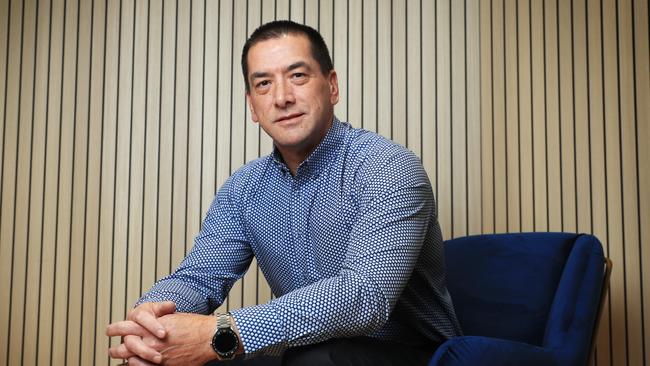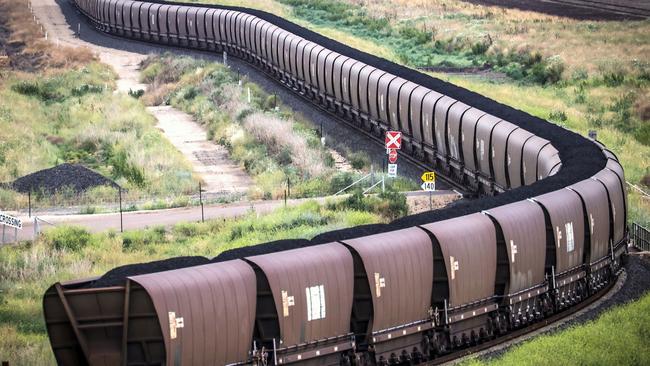Whitehaven upbeat on coal despite profit slide
The mining major says a steep first term slide in profit does not undermine its long-term faith in its $6.4bn deal to buy two giant Queensland mines from BHP.
Whitehaven Coal has shrugged off a slide in profit, saying long-term steelmaking demand from Asia and India justifies its $6.4bn deal to buy two giant Queensland mines from BHP.
Lower coal prices hit Whitehaven Coal’s first-half performance, with revenues shrinking 58 per cent to $1.6bn and net profit dropping 86 per cent to $257.6m. Underlying profit – excluding expenses relating to its purchase of BHP’s Daunia and Blackwater coal mines – came in at $372m, down 79 per cent on the prior corresponding period.
Whitehaven chief executive Paul Flynn said an anticipated shortfall in hard coking coal to supply Asia, particularly to India, is expected to underpin metallurgical coal over the longer term. “We will benefit significantly from metallurgical coal market dynamics through the Daunia and Blackwater acquisitions,” said Mr Flynn.
While upbeat on coal prices, Mr Flynn took a swipe at the cost implications of Labor’s recent industrial relations reforms, including same job, same pay laws.
The acquisition of Daunia and Blackwater tilts its exposure to steel production, while drawing criticism from a major activist shareholder last year on valuation concerns. Whitehaven shares declined 6.6 per cent to $7.01 in afternoon trade.
The coal producer said the deal to acquire BHP’s Daunia and Blackwater mines would transform the company into a leading supplier of metallurgical coal for key export markets. However, the deal was marked by a high-profile campaign by UK-based Bell Rock Capital that lobbied for capital to be returned to investors rather than invested in “risky” assets.

Australia’s commodity export earnings are set to decline as the prices of iron ore, liquefied natural gas and coal slump, according to the Department of Industry, Science and Resources. Prices will be impacted by fewer supply disruptions and “relatively soft” global economic growth, together with an expected strengthening in the Australian dollar.
Underscoring the long-term viability of the coal business, Mr Flynn said there had been strong interest from possible plans to sell a 20 per cent stake in the Blackwater mine to global steelmakers. “To describe it colloquially, we bought the loaf, and we’re selling a slice,” said Mr Flynn. “We expect to get a better price for the slice, and the interest that we’re seeing is from people who are trying to make sure that they’ve got access to material for the next two or three decades.” He added, the people who are talking about a potential investment “already buy the coal and understand it very well.”
“They understand the history, and they understand the upside potential of the further expansion of the mine,” he said. “I think they’d like to secure a meaningful position that gives them an option to ride the transition to low carbon technologies.”
He added that transition was “taking time and not speeding up as lots of people would like to imagine.” “They’re actually taking more time, so the interest (from investors) is all about securing their piece of that over time so they have surety of supply as this transition takes place over the many decades ahead,” he said.
Turning to industrial reforms, Mr Flynn said that the same job, same pay provisions requiring labour hire workers to be paid at rates at least equivalent to employees would reduce flexibility and punish workers with more experience.
“The mining sector employs both contractors and employees, Given someone with vastly more experience can be paid the same amount as someone with less experience, how are you going to reward people?” said Mr Flynn.
“It can be terribly demotivating for someone with more experience to be paid the same as someone with less experience, so I’m not sure how it is going to pan out.”
More Coverage







